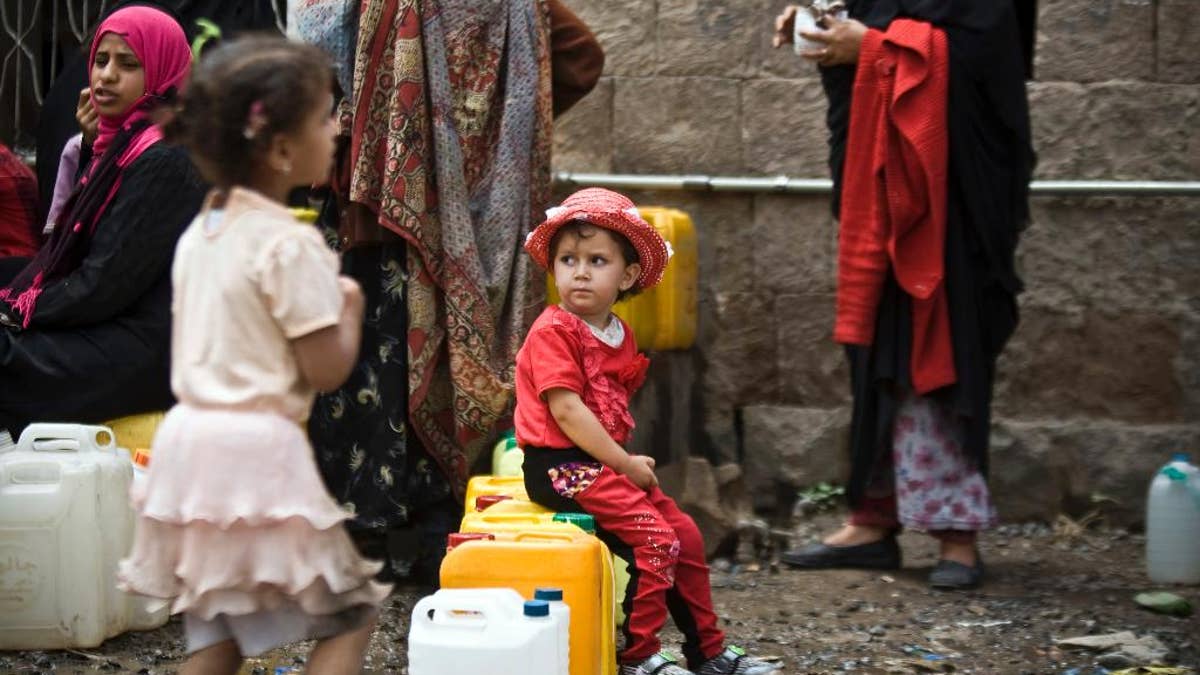
May 9, 2015: A girl waits for her turn to fill buckets with water from a public tap amid an acute shortage of water, in Sanaa, Yemen. (AP)
SANAA, Yemen – Yemen's Shiite rebels and their allies in the country's splintered armed forces said Sunday they would accept a five-day humanitarian cease-fire to allow aid to reach civilians after more than a month of daily airstrikes from a Saudi-led military coalition.
The cease-fire, scheduled to begin Tuesday, would help ease the suffering of civilians in the Arab world's poorest country who increasingly lack food, fuel and medicine since the bombing campaign began March 26.
However, all sides in a conflict that's seen the exile of Saudi- and Western-backed President Abed Rabbo Mansour Hadi have warned they'll retaliate if the cease-fire is broken.
On Sunday, state news agency SABA, which is under the control of the rebels known as Houthis, quoted Col. Sharaf Ghalib Luqman as saying rebels in the armed forces agreed with the cease-fire, warning against any violation of the truce. The Houthis earlier issued their own statement saying they will cooperate with the cease-fire, .
Saturday, Brig. Gen. Ahmed Ali Asiri, the Saudi-led coalition's spokesman, also warned that the cease-fire will be cancelled if the rebels violated it.
Meanwhile, Saudi-led strikes have continued in Yemen, with a residence of former President Ali Abdullah Saleh in the capital, Sanaa, reportedly hit. Social media accounts later posted pictures of what appeared to be Saleh speaking in front of his ruined home after the strike.
Saleh and his forces back the Houthis, who are also backed by Iran.
The raging conflict in Yemen has killed over 1,400 people — many of them civilians — since March 19, according to the United Nations.
